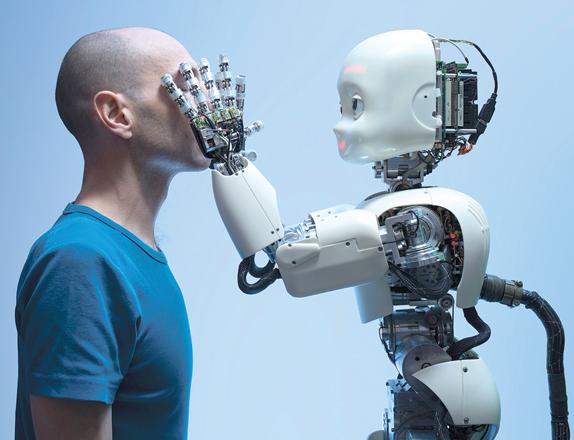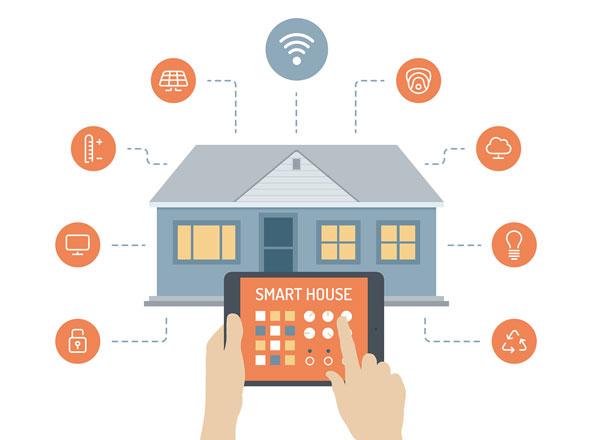You are here
AI revolution will be ‘all about humans’
By AFP - Aug 23,2017 - Last updated at Aug 23,2017

Photo courtesy of newscientist.com
HONG KONG — It is 2050 and the world revolves around you. From the contents of your fridge to room temperature — digital assistants ensure your home runs smoothly. Your screens know your taste and show channels you want to see as you enter the room. Your car is driverless and your favourite barman may just be an android.
Predictions for an artificial intelligence (AI)-dominated future are increasingly common, but Antoine Blondeau has experience in reading, and arguably manipulating, the runes — he helped develop technology that evolved into predictive texting and Apple’s Siri.
“In 30 years the world will be very different,” he says, adding: “Things will be designed to meet your individual needs.”
Work, as we know it, will be redundant, he says — visual and sensory advances in robotics will see smart factories make real-time decisions requiring only human oversight rather than workers, while professions such as law, journalism, accounting and retail will be streamlined with AI doing the grunt work.
Healthcare is set for a revolution, with individuals holding the data about their health and AI able to diagnose ailments, he explains. Blondeau says: “If you have a doctor’s appointment, it will be perhaps for the comfort of talking things through with a human, or perhaps because regulation will dictate a human needs to dispense medicine. But you won’t necessarily need the doctor to tell you what’s wrong.”
The groundwork has been done: Amazon’s Alexa and Google Home are essentially digital butlers that can respond to commands as varied as ordering pizza to managing appliances, while Samsung is working on a range of “smart” fridges, capable of giving daily news briefings, ordering groceries, or messaging your family at your request.
Leading media companies are already using “AI journalists” to produce economics and sports stories from data and templates created by their human counterparts.
Blondeau’s firm Sentient Technologies has already successfully used AI traders in the financial markets. In partnership with US retailer Shoes.com, it created an interactive ‘smart shopper’, which uses an algorithm that picks up information from gauging what you like and what you do not, offering suggestions.
In healthcare, the firm worked with America’s MIT to invent an AI nurse able to assess patterns in blood pressure data from thousands of patients to correctly identify those developing sepsis 30 minutes before the outward onset of the condition more than 90 per cent of the time in trials.
“It’s a critical window that doctors say gives them the extra time to save lives,” Blondeau says, but concedes bringing such concepts to the masses is difficult.
“The challenge is to pass to market because of regulations, but also because people have an intrinsic belief you can trust a doctor, but will they trust a machine?”
For many the idea of mass AI-caused redundancy is terrifying, but Blondeau is pragmatic: humans need to rethink careers and education.
“The era where you exit the education system at 16, 21, or 24 and that is it, is broadly gone,” he explains.
“People will have to retrain and change skillsets as the technology evolves.”
Blondeau disagrees that having a world so catered to your whims and wants might lead to a myopic life, a magnified version of the current social media echo chamber, arguing it is possible to inject “serendipity” into the technology, to throw up surprises.
While computers have surpassed humans at specific tasks and games, predictions of a time when they develop artificial general intelligence enabling them to perform any intellectual task an adult can range from as early as 2030 to the end of the century.
But Blondeau, says, “Like any invention it can be used for good and bad. There will be checks along the way, we are not going to wake up one day and suddenly realise the machines are aware.”
Related Articles
Imagine using your phone to snap a photo of the cool pair of sunglasses your friend is wearing and instantly receiving a slew of information about the shades along with a link to order them.
SINGAPORE — In today’s so-called smart home, you can dim the lights, order more toothpaste or tell the kids to go to bed simply by talking t
You: “Alexa, I’m lonely.”Amazon Alexa: “Sorry to hear that. Talking to a friend, listening to music or taking a walk might help.


















